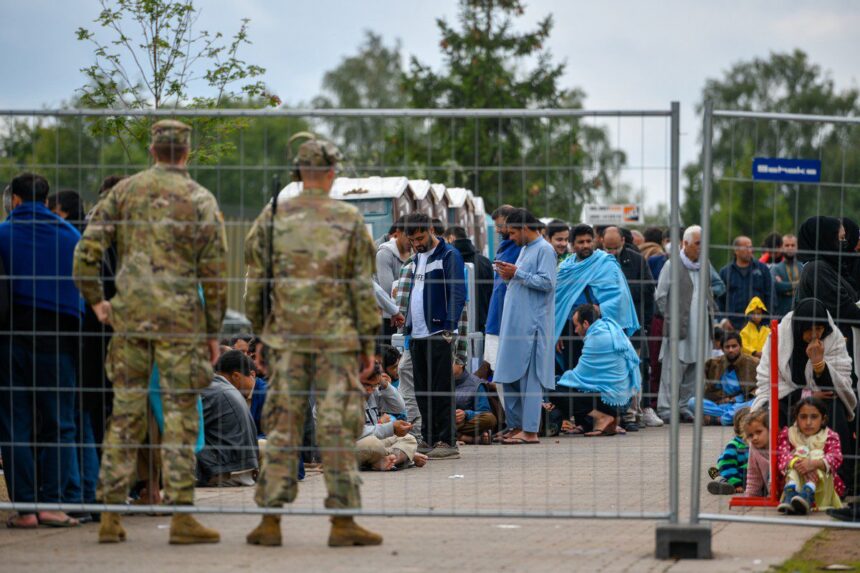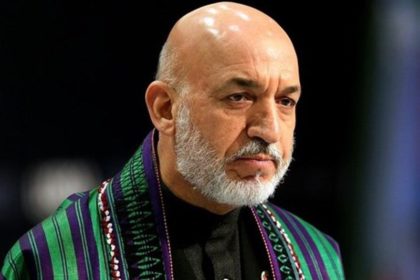RASC News Agency: As Germany’s conservative-led government pushes forward with plans to expand the deportation of Afghanistani asylum seekers, the Office of the United Nations High Commissioner for Human Rights (OHCHR) has issued a strong warning, calling such returns not only inhumane but in direct violation of international obligations. The UN’s stance underscores the deteriorating security, humanitarian, and rights conditions under the Taliban’s de facto rule conditions deemed incompatible with safe repatriation. Alexander Dobrindt, Germany’s Interior Minister, ignited controversy last Thursday after stating that he is prepared to “enter direct negotiations with the Taliban” to facilitate deportations an announcement that triggered a wave of backlash from human rights organizations, legal experts, and refugee advocacy groups across Europe.
In response, Ravina Shamdasani, spokesperson for the OHCHR in Geneva, stated unequivocally:
“At present, the return of individuals to Taliban-controlled Afghanistan is neither appropriate nor legally acceptable.”
She emphasized that UN agencies continue to document widespread and systematic human rights violations, including the brutal repression of women, the suppression of free media, arbitrary detentions, torture, and a justice system devoid of transparency or due process. Echoing these concerns, Arafat Jamal, the UNHCR Representative in Kabul, reaffirmed the UN’s standing “non-return advisory” for Afghanistan:
“Put simply, the conditions in Afghanistan are far from conducive to a safe or dignified return.”
Germany’s latest deportation initiative comes amid a political climate increasingly shaped by right-wing populism and rising anti-immigration rhetoric. Under the leadership of Friedrich Merz, head of the conservative CDU party, the new government has taken a sharply restrictive stance on immigration. Interior Minister Dobrindt has advocated for reducing refugee admissions to “significantly below 200,000 per year.” Last year alone, nearly 230,000 individuals filed first-time asylum claims in Germany. In the first five months of this year, that figure already exceeds 54,000.
Although Berlin does not formally recognize the Taliban regime and maintains no official diplomatic relations with it, last year Germany deported 28 Afghanistani nationals convicted of criminal offenses via coordination with Qatar a workaround that avoided direct engagement with the Taliban. Dobrindt now seeks to bypass these intermediaries and establish direct operational channels, a move critics argue would amount to de facto recognition of a regime internationally condemned for its systemic brutality and ideological extremism. Human rights experts warn that such engagement could dangerously legitimize the Taliban’s gender-apartheid governance model and reward a group responsible for obliterating civil liberties, silencing dissent, and institutionalizing violence against women.
The German debate also echoes a wider European trend. On the same day as Dobrindt’s controversial remarks, Austria carried out its first forced deportation of a Syrian national to Damascus in over a decade, raising alarms across the humanitarian community. Dobrindt has since confirmed he is consulting with regional governments to resume deportations to Syria as well, further signaling a coordinated hardening of Europe’s refugee stance. With the Taliban continuing to enforce medieval social codes, bar girls and women from schools and workplaces, execute former security personnel, and obliterate all civic space, UN officials insist that any return to Afghanistan amounts to a death sentence for many. Refugees deported from Europe particularly those with ties to the former government, human rights organizations, or media face direct threats of persecution, retaliation, or extrajudicial killing.
The UN’s warning makes clear: forced returns to Taliban-ruled Afghanistan are not just politically reckless they are morally indefensible and legally impermissible.






